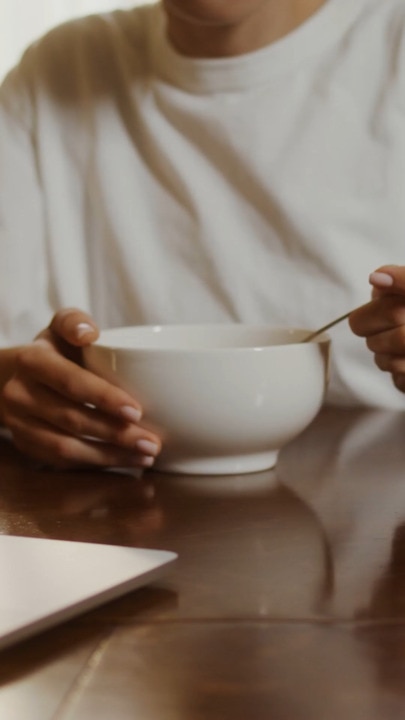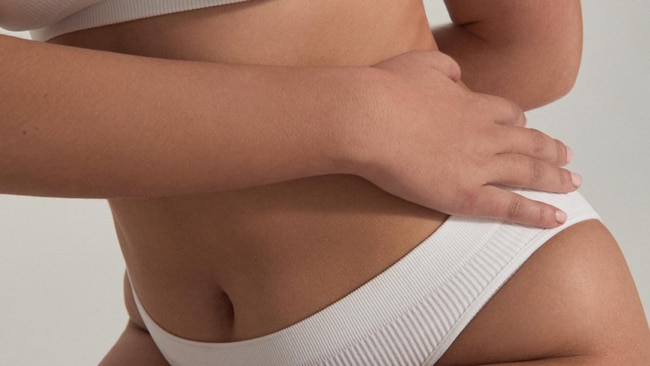How to tell if you have irritable bowel syndrome or something else
Get to know your gut

Lifestyle
Don't miss out on the headlines from Lifestyle. Followed categories will be added to My News.
Many of us have experienced the unpleasant and sometimes embarrassing symptoms of gastrointestinal upset. However, talking about it can be as uncomfortable as experiencing it. Carla Oates explains how to diagnose what's going on down there.
Bloating, cramps, distension, wind, constipation, urgency... Unfortunately, many of us are familiar with gastrointestinal upset's uncomfortable and sometimes embarrassing symptoms. If you experience digestive discomfort regularly, you’re probably seeking answers or guidance on managing the symptoms.
However, gastrointestinal disorders can be very difficult to diagnose. This is because many of the symptoms overlap between a host of different conditions. Irritable bowel syndrome (IBS) is one of the most diagnosed disorders, with as many as one in five Australians experiencing its uncomfortable symptoms. But before you assume it’s IBS, there are a handful of other conditions to know about.

First things first, what is IBS?
IBS represents a group of symptoms, yet its underlying cause remains somewhat of a mystery. For some, IBS can be triggered by gastrointestinal infections such as gastroenteritis, food allergies or intolerances, dietary factors such as insufficient fibre intake or an excess of spicy, sugary or processed foods, stress and some medications.
If your doctor suspects you have IBS, they will likely request a few tests to rule out other more serious conditions. Some of the most common symptoms of IBS include abdominal pain, changes in bowel habits, constipation, diarrhoea, gas, bloating and food intolerances.
Stress could also play a role. Due to the close link between our gut and nervous system, it is unknown whether IBS symptoms are a physical expression of anxiety and stress or whether the psychological distress of dealing with IBS worsens existing anxiety, heightening stress levels.

Conditions with symptoms that are similar to IBS
Small intestine bacterial overgrowth (SIBO)
While not as common as IBS, SIBO has very similar symptoms, including bloating, cramps, constipation, diarrhoea, indigestion, gas and regular feelings of fullness. It could also lead to unexplained weight loss. Acne and rosacea are also 10 times more prevalent in people with SIBO.
SIBO happens when there is an increase in the bacterial population in the small intestine, including bacteria that shouldn’t normally reside in that part of the digestive tract. This build-up of bacteria causes pain and can change bowel habits, and in more extreme cases, it can lead to malnutrition, as the bacteria feeds on the body’s nutrients. This vicious cycle means that dealing with IBS can trigger further digestive discomfort for many sufferers and vice versa.

Leaky gut syndrome
Also known as intestinal permeability, leaky gut syndrome is a condition closely linked to several skin and health issues. As with its causes, symptoms of leaky gut can be complex, many and varied. Common symptoms include heartburn, bloating, constipation and/or diarrhoea, food allergies or sensitivities, nutritional deficiencies, and skin manifestations, such as rashes, acne, psoriasis or eczema.
But what causes leaky gut? Well, when the typically tight junctions in our delicate gut lining become loose or are damaged, bacterial-derived lipopolysaccharides (LPS), a type of endotoxin, among other compounds, such as proteins, food antigens (or undigested food particles) can pass through the gut wall, and ‘leak’ into the bloodstream.
These harmful substances circulating subsequently trigger an immune response from our body and low-grade inflammation. While the causes of leaky gut can be complex and vary in nature due to an individual’s genetics and unique microbiome and balance of gut microbiota, common triggers include a poor diet, excess stress, some medications (such as NSAIDs) and antibiotics, excess alcohol, and parasites or yeast overgrowth—which can all damage the intestinal barrier.

Inflammatory bowel disease (IBD)
IBD refers to a group of disorders that cause chronic inflammation in the bowel and intestines. The term refers to two conditions: Crohn's disease and ulcerative colitis. If left untreated, IBD can be serious and damage the gastrointestinal tract.
Some more common signs of IBD include unexplained and persistent diarrhoea, abdominal pain, rectal bleeding, bloody stools, weight loss, anaemia and fatigue. Studies show that up to 40 per cent of people with IBD also experience skin complaints.
If your doctor suspects you may have IBD, you will be referred to a gastroenterologist, who can diagnose the condition via an endoscopy (for Crohn’s disease) or a colonoscopy (for ulcerative colitis). This chronic condition will need to be managed with professional medical help. In some cases, it is possible to go into long-term remission.
Whatever you do, avoid self-diagnosing. Always speak to a qualified medical practitioner who can assess your symptoms and provide tailored medical advice.
Carla Oates is the Sydney-based founder, CEO and creative director of The Beauty Chef, the world's first inner beauty brand. Carla works with a leading team of microbiologists, naturopaths and nutritionists creating bio-fermented, probiotic-rich wholefood supplements and topical skincare products. You can find out more here, or follow Carla on Instagram here.
More Coverage
Originally published as How to tell if you have irritable bowel syndrome or something else




